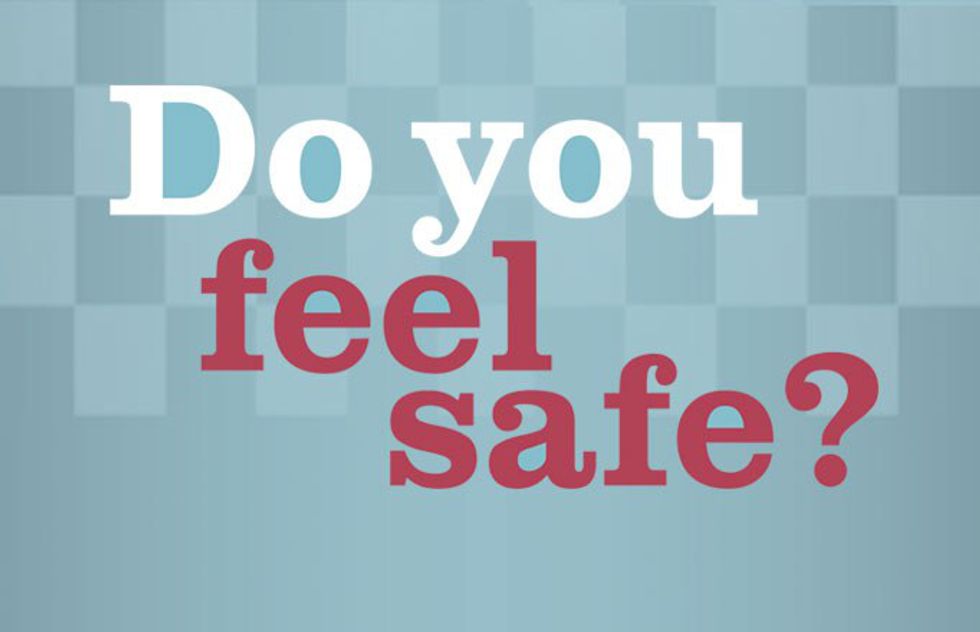I am not a trained professional, and you probably aren’t either. If your friend has expressed a wish to commit suicide, it should be taken seriously, and if you think your friend is in danger of harming themselves or someone else, you should most certainly call 911. The hospital, if it does nothing else, will keep your friend safe, and your friend’s safety is of the utmost importance. This article is only based on my own experiences and what’s helped me in the past.
Contact the Whatcom County Crisis Line at: 1-800-584-3578.
Contact the National Suicide Helpline at: 1-800-273-8255.
But there is always 911.
USE THESE.
1. Ask them if they have a plan.
This is the first question you should ask. They are most in danger if they have a plan and are ready to execute it. If the answer is yes and you suspect they will execute it, call 911. If the answer is no, keep them talking.
2. Ask where they are and go to them, if possible.
How have they contacted you? Did they text you? Call them. Did they call you? Talk to them, ask questions. Ask where they are and what they’re doing. If they are in danger of harming themselves or someone else, call 911 immediately. But if they’re by themselves somewhere and you’re able, drop whatever you’re doing and go to them.
3. If you can’t go to them, find someone who can.
Do you know any friends of theirs? What about their family? Encourage them to reach out to these people, and tell your friend to tell them what is happening too. The very fact your friend called you means that somewhere, they still have a will to live. Tell them to call a crisis line if they don’t have support, or even if they do. Check on them, call back every few minutes, and see if they got a hold of anyone, and if they haven’t, make phone calls to their support system too and let them know what’s happening. Your friend may be upset with you for doing this, but it could mean the difference between life and death. If at any point they become non-responsive, call 911.
4. Take away their suicide method.
How are they planning on killing themselves? If they are planning on overdosing, take away the pills. If they’re planning on slitting their wrists, hide all the knives in the house. If they plan on jumping from a high building, go somewhere they can’t. Keep them away from deep water, etc. If the method is not readily at their disposal, it’s less of a temptation.
5. Encourage self-care.
Ask if they’ve eaten, if they’ve taken a shower, if they’ve brushed their teeth. If your friend is thinking of killing themselves, self-care is probably at the bottom of their to-do list. Most people feel much better after doing simple things like that. Make them some tea or coffee. Make their bed. Help them clean up their house.
6. Don’t let them be alone for too long (or maybe not at all).
Don’t be invasive, or be invasive if you feel it is necessary. Tell them to leave the bathroom door unlocked, or to leave it open, and check on them if they spend too long by themselves.
7. Keep them away from triggers.
Are they listening to sad music? Stop it. Don’t let them drink alcohol, especially if they are on medication. Steer clear of sad movies or sad topics. Now is not the time to go into a sad story of your own. Tell them to steer clear of people who will not help the situation. That can mean parents, siblings, significant others who aren’t supportive of them. Encourage them to surround themselves only with people who will help them. But also let them talk through their feelings. One of the most important things you can do for them is listen.
8. Distract them.
Are they working on any kind of project? Encourage them to work on that. If they have anxiety about said project, depending on what it is, tell them to take it one step at a time, or to steer clear of it for now and do something they enjoy. Watch a happy movie, play a game. If they have any coloring books, tell them to color in them. Tell them to read something, or you can read something out loud to them if they’re having trouble concentrating. Remember, depression and anxiety can be exhausting. Just do something to get them out of their own head.
9. Let them know how much they mean to you.
Without making them feel guilty, let them know what they do for your friendship or relationship and how it would make you feel if they weren’t there anymore. If they are apologizing or afraid of burdening you, let them know they are not a burden and you are happy to help if it means keeping them alive. Most people who are suicidal think their family and friends would be better off without them. Let them know this is not the case.
10. Ask, before you leave, if they will be safe by themselves.
If the answer is no, call 911. Make sure they will be safe, even if it means keeping all of their kitchen knives for the next week.
11. Check in with them periodically.
Don’t be annoying, but text them a couple times a day. Ask how they’re doing. Send them cat videos or whatever they like. Ask if they’re safe.
12. Remember you are not a trained professional.
Even if you still go through all of these steps, they still may not be doing OK, and that does not in any way reflect on you. Don’t take it personally that your friend is not responding well to your help; you may be helping more than you know.
13. If ever in doubt, call a crisis line or 911.
People operating these hotlines have been trained to handle these kinds of situations. The hospital is expensive, and it’s a hard place to find yourself in, but it will keep your friend safe. They may never forgive you for sending them there, but know it is much better to sacrifice your friendship than their life.


































